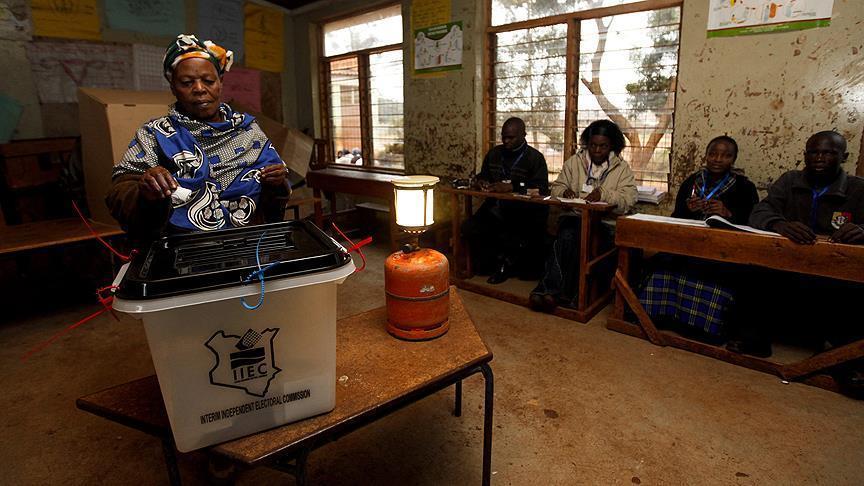 FILE PHOTO
FILE PHOTO
By Magdalene Mukami and Andrew Wasike
NAIROBI, Kenya
Boniface Mwangi, a photojournalist-turned-activist, has a decade-old history of being tear-gassed, arrested and beaten by police during his fight against corruption.
The 34-year-old activist has used a number of creative ways to protest, leaving President Uhuru Kenyatta’s government with a fresh headache with every new method.
While working as a photographer in 2007, Mwangi covered post-election killings and maimings, motivating him to become an activist.
When Kenyan lawmakers called for a hefty salary increase in 2013, Mwangi organized a protest outside the parliament, where a number of pigs were used to portray the greed of Kenyan lawmakers.
He also burned 221 coffins outside the parliament building in Nairobi in protest at the parliamentarians’ bid to triple their pay.
Now he is standing in next month’s general election in Starehe, a constituency in the capital Nairobi.
“I want to bring change from within the government now as my street escapades have been successful,” he said during door-to-door campaigning on the streets of Eastleigh.
Kenyan elections have always been tainted by tribal politics and bribery but Mwangi has taken a stand against graft or even holding large-scale public rallies.
New wave
“I want my children to grow in Kenya, that I never had a chance to grow in, a Kenya with no corruption,” the father of three told Anadolu Agency.
His activism seems to have had an impact in a country where public officials have previously enjoyed a relative lack of oversight of their pay.
Last week, a special commission slashed the salaries of Kenyatta, his deputy, ministers, parliamentary deputies and military chiefs in a bid to save 8.8 billion Kenyan shillings ($84.7 million) annually.
Sarah Ikua, a college student who supports Mwangi, said he represented a new wave of Kenyan politicians.
“He is very young,” she said. “Kenya has a tendency of having very old politicians who sleep in parliament. I want to vote for someone who won’t go to parliament to sleep but fight for me to get employment after college.”
However, Mwangi faces a significant barrier in the tribal voting system. Most voters who belong to one of the country’s 42 tribes tend to cast their ballot in favor of the candidate supported by their tribal leadership, irrespective of their reputation.
There are also plenty unconvinced by Mwangi, who has said he does not support either of the two main presidential candidates -- Kenyatta or former Prime Minister Raila Odinga -- who are also standing for election on Aug. 8.
“He is very young. He has zero experience in politics and probably he will be overwhelmed with the pressure that comes with the position,” businessman Tom Mutua, 44, said.
“This is not a person that I want as a leader.”
Anadolu Agency website contains only a portion of the news stories offered to subscribers in the AA News Broadcasting System (HAS), and in summarized form. Please contact us for subscription options.

